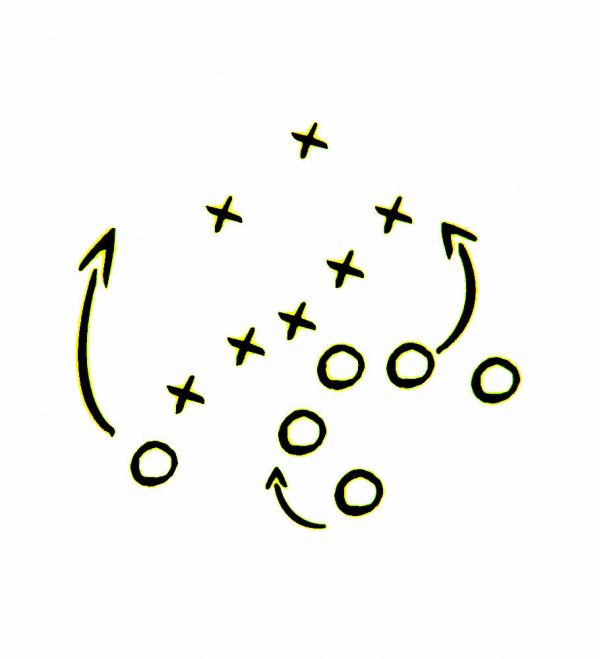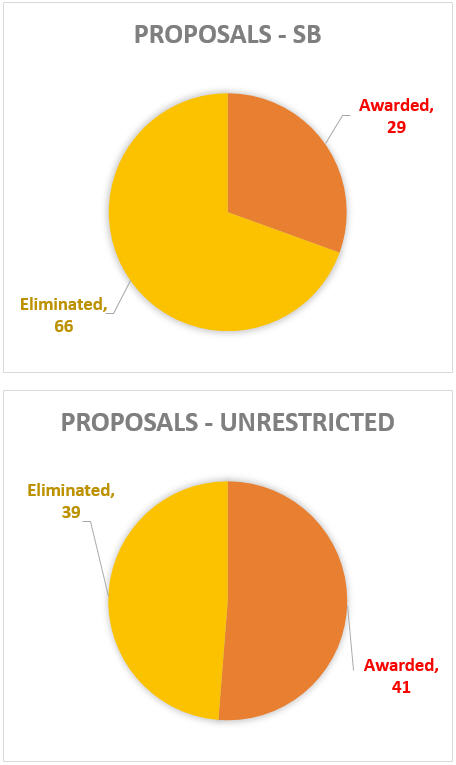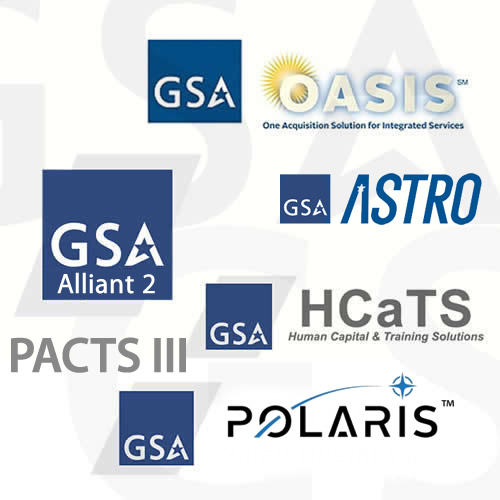Understanding Self-Scoring Solicitations
Self-scoring solicitations represent a significant shift in federal procurement strategies, fundamentally altering how government agencies select contractors for high-value, multi-award contracts. Originally introduced as a response to streamline procurement processes, self-scoring has gained traction with agencies like GSA, NIH, DoD, and VA, especially in IDIQ and GWAC contracts, including well-known opportunities such as OASIS+, CIO-SP4, ASTRO, Alliant 3, and Polaris.
Unlike traditional federal solicitations that rely heavily on extensive written technical narratives evaluated subjectively by the government, self-scoring proposals emphasize objective, quantifiable evaluation factors. Contractors score themselves based on clear, predefined criteria such as documented past performance, specific certifications (ISO, CMMI), systems, clearances, and demonstrated experience across relevant projects. This method prioritizes clear evidence and documentation over subjective interpretations, placing the onus on contractors to substantiate their self-assessment meticulously.
How Do Self-Scoring Solicitations Work?
Contractor Responsibilities
- Self-Assessment Stage:
- Conduct a detailed internal review to identify qualifying experiences, certifications, clearances, and capabilities.
- Perform gap analyses to pinpoint areas of weakness that might benefit from strategic teaming or partnerships.
- Identify optimal partners early if allowed by the solicitation.
- Proposal Preparation:
- Carefully complete self-scoring worksheets provided in the RFP, ensuring accuracy and compliance with explicit scoring guidelines.
- Substantiate claimed points through meticulous documentation, highlighting, and annotation as required by the solicitation.
- Proposal Submission:
- Submit the finalized proposal through platforms such as Symphony or other designated submission tools.
Government Evaluation Process
- Initial Compliance Check:
- Immediate elimination of non-compliant proposals lacking essential documentation or failing to meet submission guidelines.
- Score Verification and Validation:
- Government evaluators verify the accuracy of claimed scores and supporting documentation.
- Proposals that successfully substantiate their claimed points proceed to the ranking phase.
- Ranking and Award Determination:
- Proposals are ranked strictly based on verified scores.
- Top-ranked contractors receive awards based on predetermined thresholds or quantities stated in the solicitation.


Planning to Win a Self-scoring Solicitation Opportunity
Having a win strategy is essential in any competition, including self-scoring solicitations. Despite the apparent simplicity of self-scoring solicitations, many participants underestimate the importance of a robust win strategy. The following concepts form the core of an effective win strategy:
- Compliance is integral in every step of proposal preparation.
- Past performance is the most critical criterion for project selection.
- Maximize the use of commercial (non-governmental) projects to enhance your score.
- Employ GDIC’s Per-Contract Scoring System and Assessment (Self-Scoring Matrix) to optimize your scoring potential.
- If permitted by the RFP, bring in strategic partners to address any gaps.
- Obtain past performance evaluations from friendly Contracting Officers (COs) who are familiar with your work.
- Continuously emphasize compliance throughout the proposal development process.
- Seek professional consultation and support, especially if you’re inexperienced or previously unsuccessful with self-scoring solicitations.
To maximize your score effectively:
- Thoroughly understand solicitation requirements
- Accurately assess your chances of winning
- Ensure strict compliance with submission guidelines
- Strategically maximize your score potential
- Partner strategically to address any qualification gaps
Challenges in Self-Scoring Proposal Submissions
- High Risk of Non-Compliance:
- A significant percentage of proposals are disqualified due to overlooked compliance details, incorrect documentation, or formatting errors. Even minor oversights in substantiation can result in disqualification, as agencies strictly enforce compliance to streamline evaluations.
- Difficulty Maximizing Scores:
- Many contractors under-score themselves by failing to recognize or substantiate eligible points adequately. Without comprehensive contract profiling and strategic analysis, opportunities to claim additional points may go unnoticed.
- Complex Document Management:
- Self-scoring proposals require extensive management of multiple documents, certifications, and evidentiary support. Without a structured and organized process, critical evidence may be misplaced or improperly highlighted, resulting in lost points or disqualification.
- Strategic Positioning and Competitive Analysis:
- Firms that lack a strategic approach or fail to assess their position relative to competitors might misjudge their scoring potential, resulting in suboptimal submissions. Effective partnering and detailed competitive intelligence are essential components to maximizing scores and securing awards.


Introducing GDIC’s Self-Scoring Proposal Lab
To effectively address these challenges, GDIC has created the Self-Scoring Proposal Lab—a specialized service designed to support contractors at every step of the self-scoring proposal process:
- Automated Self-Scoring Evaluations: Quick assessments and calculations to gauge your proposal’s potential standing instantly.
- Gap Analysis and Score Optimization: Identifying unclaimed points and providing actionable recommendations to maximize scores.
- Pre-Award Mock Evaluations: Realistic simulation of the government evaluation process, allowing you to benchmark against competitors and fine-tune submissions.
- Compliance and Documentation Support: Comprehensive assistance in preparing, reviewing, and organizing documentation to meet strict agency requirements and standards.
GDIC’s dedicated Self-Scoring Proposal Lab ensures your submission stands out, meets all compliance criteria, and maximizes your potential score—dramatically increasing your likelihood of securing federal awards.
Ready to Maximize Your Self-Scoring Proposal Success?
Take advantage of GDIC’s unparalleled expertise and dedicated resources in the Self-Scoring Proposals Lab. Contact us today for your complimentary initial assessment and see how our proven approach can dramatically enhance your federal proposal outcomes.

Why GDIC Excels?
General Services Administration is a major source of US government business opportunities in all sectors of industry. In recent years, GSA has been using more of the new contracting vehicle and solicitation evaluation framework called Self-Scoring Proposals rather than from the traditional proposals mainly consisting of Management, Technical and Pricing section. By getting the contractors involved in the scoring process so that they become better aware of their strengths and weaknesses, GSA hopes that the outcome of this process is higher quality and better managed contracts at lower costs to the government. However, the new system has its complexities, and very few contractors can take advantage of the full potential of these solicitations to secure contracts.
GDI Consulting has been working on GSA proposals for years, and is an expert in Self-Scoring contract vehicles, both from GSA (e.g. OASIS, Alliant, POLARIS, and HCaTS, Astro, OASIS Plus, PACTS III) and other agencies (e.g. SEC OneIT, T4NG) with over 200 proposal completed and many wins. We provide consultation, proposal development, and proposal review services at different stages of its development. So, whenever you decide to enter into a Self-Scoring federal bid, let our vast experience bring out the best of your corporate assets and professional capabilities and support you in winning your desired contract.
